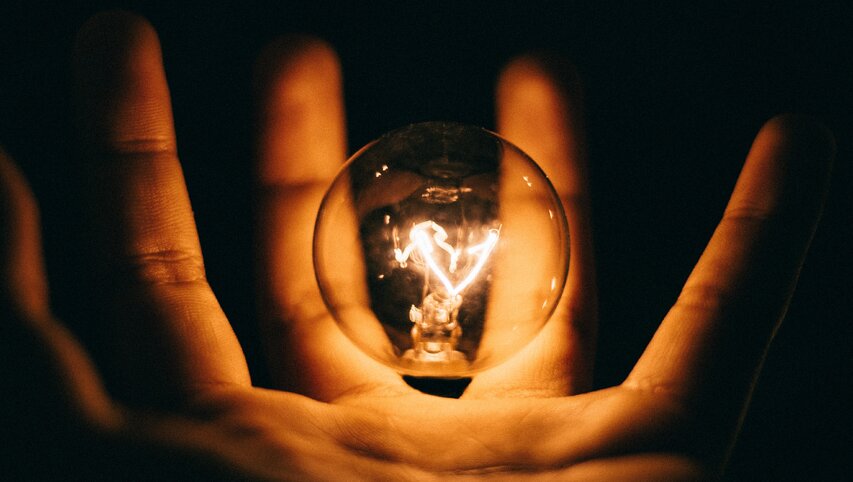test
Efficient Use - Through Intelligence

To save, to take care of the environment, but not to put yourself under great restriction, just to act thoughtfully and take advantage of the opportunities offered by technology: does it sound attractive? This behavioural formula is described in a simpler way – efficient consumption of energy. The concept, the goal, the measure and the consequence - everything fits into one when it comes to increasing electricity efficiency, which is receiving more and more attention from all the developed countries of the world.
Lithuania is no exception here the Government of which approved amendments to the Law on Increasing Energy Efficiency on 1 April, which will allow implementing the goals of the National Energy Strategy and achieving that energy savings in our country would be 1.5 times higher by 2030 compared to 2017. Having achieved energy saving targets in 2030, Lithuania would approach the EU average in terms of energy consumption per unit of gross domestic product.
This strategy envisages that the introduction of energy efficiency measures and savings is obligatory not only in the business sector such as industry, transport, agriculture, services, which consumed about 70 percent of all electricity consumed in the country in 2019 but also in households.
The Most Effective Way is to Evaluate Your Behaviour
One of the most effective ways to save electricity for households is to change the habits of the population and adapt to optimal consumption, says Renaldas Radvila, the Head of the Service Department of the company “Energijos Skirstymo Operatorius” (ESO). Such an efficient opportunity will appear for all household consumers in the country together with the introduction of smart electricity metering, which is scheduled to start in 2021.
“Here, in Estonia, suppliers these days calculate exactly how much, when and where during the quarantine period the electricity consumption of household consumers has increased based on the specific data of their customers. Smart electricity meters installed in the holdings of almost the entire population of the country allows them to accumulate such statistics for analysis. We cannot perform such detailed calculations yet - we only have generalized figures declared by the population, which tell us one general dynamic parameter whether the consumption increases or decreases or does not change,” says Mr. Radvila. He notes that smart metering in Lithuania will allow the formation of three new bright directions in the household electricity market. The first is that electricity consumption data received at least once a day will allow consumers to analyse and adjust their habits themselves.
Many studies in European countries that have already implemented smart metering have shown that the analysis of personal consumption habits allows saving on average from 5 to 8 percent of electricity. This means both correspondingly lower bills and more efficient energy consumption, which does not require much human effort as technological improvements and a handy tool for monitoring are just enough. The person’s worries are just decreasing - there is no need to write off the data of the meters because they themselves constantly travel to the supplier’s database.
Mr. Radvila urges not to be fooled by the numbers: global practice shows that even about 5 percent of the amount of energy saved due to more rational activities translates into a huge value on a national scale. For example, if all Lithuanian household consumers reduced their costs by 5 percent when analysing them, we would save about 180 million kilowatt-hours of electricity throughout the country per year.
Will Open a Higher Level of Technology
The second direction is the expected growing reliability of the entire electricity network. In addition to their main function, smart meters also provide continuous information on the status of the network such as where the highest loads are experienced, where interruptions occur, in which units the incidents can be prevented.
“This information is not visible to the common electricity user, but is especially relevant for the energy distribution network operator, which seeks to ensure reliable operation, wherefore the customer himself ultimately benefits. The use of the data transmitted by smart metering allows eliminating, for example, disruptions caused by storms, which reduces the time without electricity for consumers. The operator, seeing where the highest loads are experienced, preventively optimizes the equipment and is one step ahead of incidents,” says Mr. Radvila.
The third direction is the integration of new opportunities, which emerges together with the higher technological level ensured by smart metering.
The Data Hub developed by the energy network operator will ensure the possibility for the population to change the energy supplier easily and quickly. In Lithuania, this will be especially relevant in the near future, after the final opening of the household consumer market to effective competition between suppliers. Examples from other countries show that the analysis of consumption data in the free market is whirling the further progress faster and faster by creating better opportunities for suppliers to develop new services and products needed by the population, providing a breakthrough in the field of smart home energy management, electric car network development, allowing more efficient and on-demand recruitment of “green” energy.
For example, smart heat pumps or air conditioning systems common in the Scandinavian countries can connect to the Internet themselves via a Wi-Fi network and download exchange electricity prices so as to make optimal use of resources when they are cheaper.
“There is no doubt that the motivation of each person to use electricity more efficiently is individual. For some, saving money is more important, others are more motivated to change their habits by a “green” philosophy, the desire to live more sustainably, and third value technological progress in smart metering the most, jointly enabling to combine all motivational factors. The most important thing is that it also contributes to the general direction of the whole state, the efficiency goals of the country at the international level,” emphasizes Mr. Radvila.
Photo: Rohan Makhecha, Unsplash

